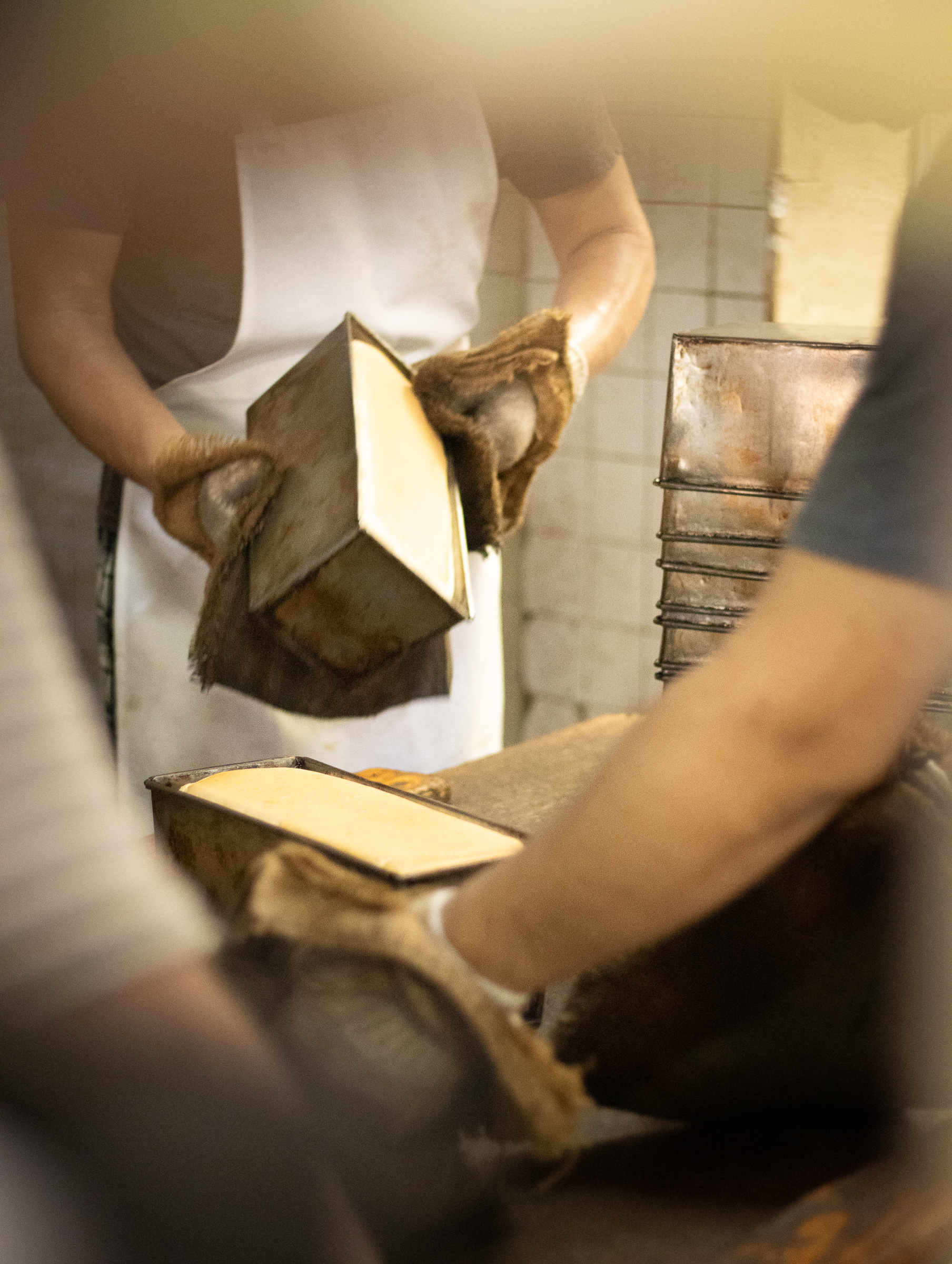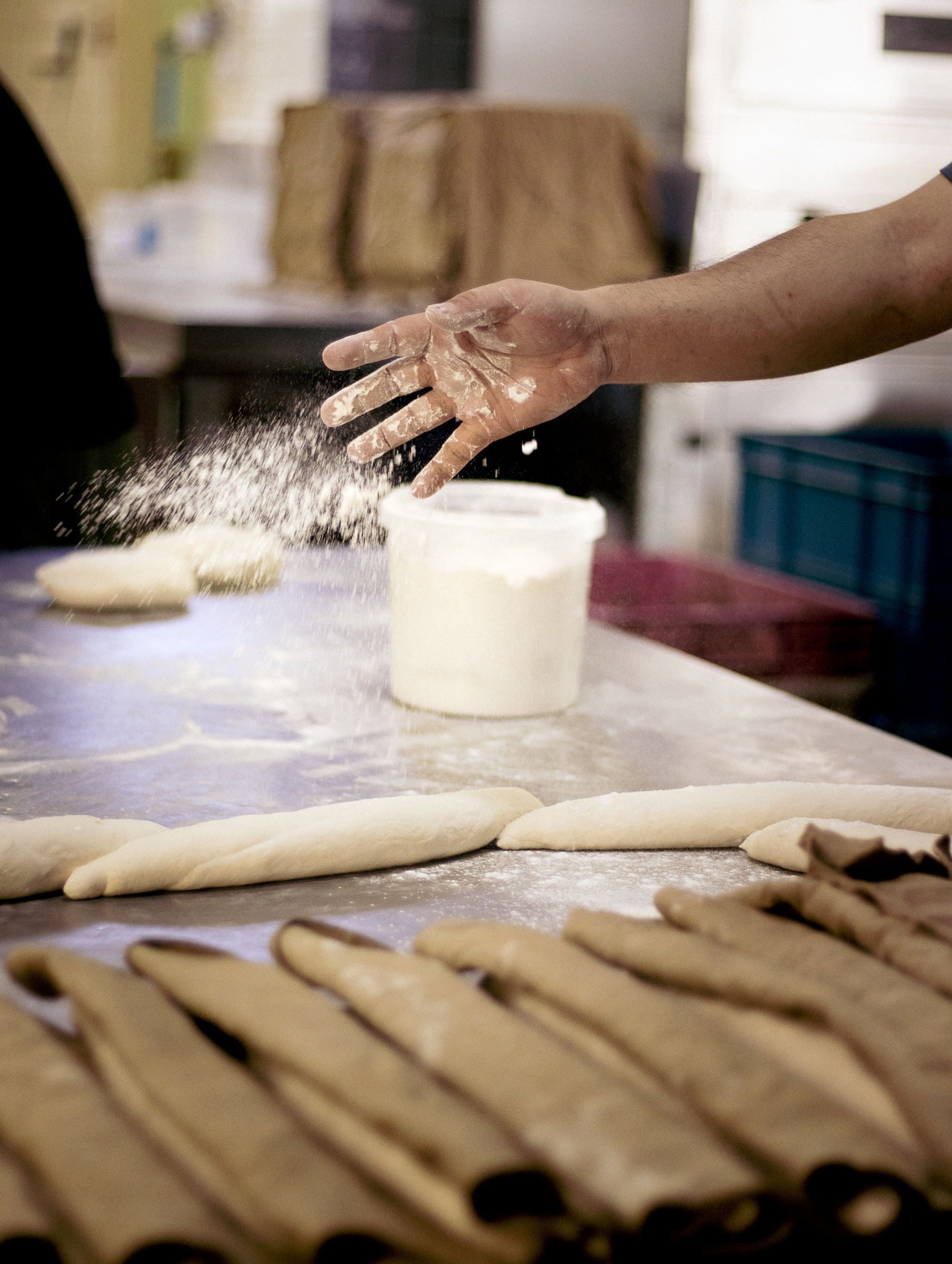Francis developed his artistic streak from an early age, having picked up woodworking in primary school as a way to entertain himself and learn a skill. He still keeps one of the first wood pieces he completed – a wooden block with a carved and painted lion at its head – and often shows it fondly to visitors. But wood isn’t the only medium he works in. Francis is a man of many talents who paints, makes lanterns, folds intricate paper offerings, applies gold leaf inlay, and sculpts clay using his own hand-made moulds, just to name a few. He shares that it is difficult to make a living depending on a single craft, so he has had to pick up several to cater to the varied requests of his customers. Every skill he possesses was self-taught, honed through decades of practice and experimentation. Although he jokes that his friends have found it easier to ask him what he cannot do rather than what he can, Francis remains critical of his own work and always seeks to better his craft.
The Pong Lai Diao Huang workshop is well-stocked with raw materials for Francis’s craftwork. While this includes planks of high-quality hardwood, one might be surprised to see half-dismantled shipping pallets and discarded furniture in their midst. They are not there by accident – Francis, with his decades of woodworking experience, is able to turn even the tiniest scraps of wood into something beautiful. He shows his visitors an intricate wooden rabbit, meticulously carved by hand and about the size of a finger joint. He then reveals a wooden block comparable to the one it was carved from – a scrap barely a cubic inch in size. Francis shares that although some visitors have commented on the scraps he accumulated over the years, he is unfazed as he knows each piece is valuable in his artistic eye.
Many devotees would be familiar with the paper offerings burned during various religious occasions, such as celebrations and funerals. These frequently include paper representations of money, clothes, horses, armour sets, and more, intended for a variety of recipients such as departed relatives, wandering spirits, and deities. Pong Lai Diao Huang supplies not only these popular offerings, but also unique, handcrafted offerings based on customer requests.
In one instance, Francis was provided with a photo of a handheld battery-powered fan, and was asked to make a paper version. Not only did Francis create the paper fan complete with spinning fan blades, he was also able to make it collapsible for storage, just like the real product. Francis even included a paper “portable charger” and “charging cable”, which could plug into each other and the fan. His other works include paper standing fans with adjustable height and spinning blades, as well as faithful paper duplicates of popular sneakers, complete with embossed branding.
Given the sheer amount of time and effort that goes into planning and crafting these one-off designs, Francis quips that it would probably be cheaper to buy and offer the real products themselves. Nevertheless, he relishes the challenge of figuring out how to replicate these items faithfully with paper, and always rises to the occasion to fulfil these special requests.
Francis’s creativity also extends to his knack for acting. His repertoire includes performing in Chinese opera and making appearances as Cáishén Yé (财神爷, Chinese God of Fortune) during auspicious occasions such as Lunar New Year. In both cases, he takes great pride in the intricate details and accuracy of his costume. While some other performers may rent the cheapest costumes for their appearances, Francis maintains his own in immaculate condition. He highlights the delicate embroidery of his costume’s robes and the two “paddles” on his headgear, which are iconic aspects of Cáishén Yé’s image. To Francis, a good performance benefits from this sort of attention to detail, which manifests itself not just in one’s costume, but also in one’s approach to the character being portrayed.
Pong Lai Diao Huang also restores deity statues, which usually come to them in various states of repair. The simplest cases require only a repainting, during which Francis enhances the statue’s facial features to make them more lifelike and striking. One particularly memorable case, however, involved a wooden deity statue that had unfortunately been caught in a fire. The statue’s feet had been burned off, leaving a charred stump. Francis was able to fashion a new pair of feet out of wood and then meld it to the statue skilfully with clay. After repainting, the repair work was seamlessly integrated and undetectable. Francis also took the opportunity to touch up the deity’s facial features, adding brighter eyes, expressive eyebrows, and vividly-coloured lips.
When Francis needed a new name for his business, he coined the name Pong Lai Diao Huang (蓬萊雕坊) out of two components. “Pong Lai” (蓬萊) refers to a legendary land in Chinese mythology where immortals reside. It is an enchanted land where rice bowls and wine glasses are never empty, and special fruits can cure any ailment. “Diao Huang” (雕坊) means workshop, where “diao” (雕) refers to “carving”, and “huang” (坊) refers to “place”. Put together, Francis interprets the name to mean “carving workshop for the gods”. The name Pong Lai Diao Huang is thus an apt reflection and marriage of the two aspects of Francis’s work – his dedication to his religious duties, and his passion for his craft.




